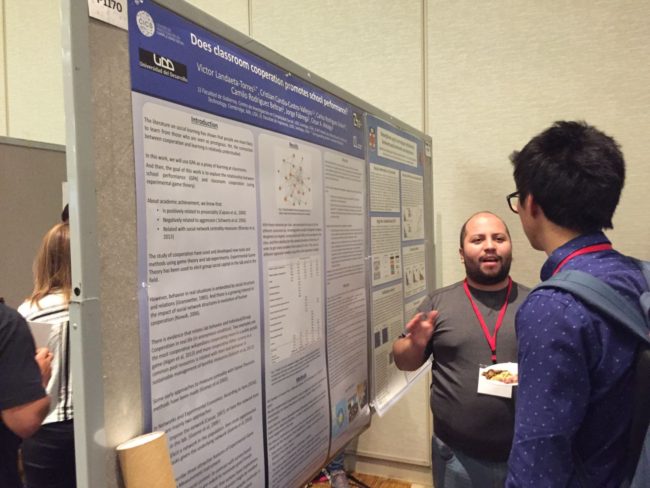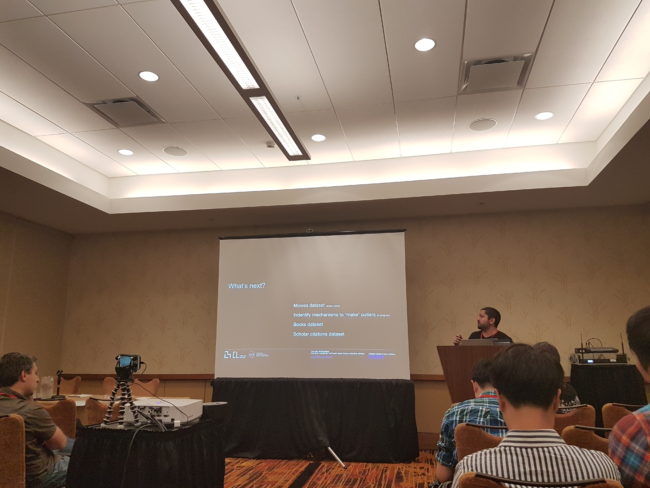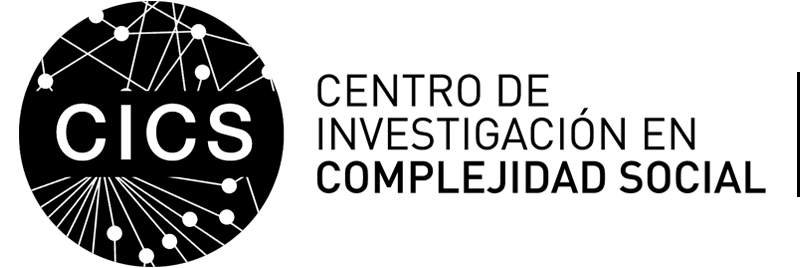[CICS on Tour] Researchers presented advances in NetSci 2017
Wednesday, 9 August, 2017 | NEWSTwo students from the first generation of the DCCS showed their work in the most important conference of the world on Network Science, which was held this year in Indianapolis, United States.
* This note is part of the DCSS student participation at conferences, seminars and other international events.
Víctor Landaeta and Cristián Candia, graduates in physics and current students of the Doctorate in Social Complexity, participated in the annual edition of the International School and Conference on Network Science (NETSci), a meeting that brings together scientists from all over the world who contribute in the Path of theoretical research and practical applications of the science of networks in different areas of knowledge.

Does classroom cooperation promote learning?
Landaeta exhibited in the NETSciEd, a space focused on the applications of Network Theory in the field of education, and in the Lighting Talks. Here he presented to the international community expert in Complex Systems the scientific bases that support the creation of the instrument of measurement of pro-social dispositions used in the project Fondef “Platform of digital games for the measurement of the dispositions to the cooperation for the scholar coexistence”.
His presentation included observations from his previous visit at the 5th Antigua Experimental Economics in February 2017, and explored the results obtained after an experiment on the connection between student performance and classroom cooperation through mapping of six classroom networks using a non-anonymous co-operative game.
The exercise made it possible to compare the centrality of each student (measured as the sum of the tokens received in the game) with their grades in the classroom (GPA). “If we understand the relationships of each child as the tokens that are sent and received, with that information we can build a network and the number they gather at the end reveals the position of each individual within it. The children who receive more tokens from their peers, have a better academic performance within their course. In contrast, the children who give more pieces have a lower GPA. These are the correlations that we have found, “explained Victor.
These results suggest a link between cooperation and learning, and open new paths for the role of networks in education. In addition, investigators highlight the originality of this measurement that reveals children’s actions, unlike the traditional use of surveys.

The Laws of Forgetting I: Temporal Scales in Human Collective Forgetting
Cristián Candia presented in Quantify Success, a satellite event of the NETSci that seeks to bring together scientists and researchers from different disciplines and give them the opportunity to present and discuss their recent findings, identify open questions and new challenges, and develop common languages to solve problems in the Emerging and fascinating field of “science of success”.
The researcher noted that “the experience was great, among other things, because the advances I presented were well received by the community, which corresponds to the greatest exponents of the world in this area. In addition, he allowed me to make a 6-month visit to the Center for Network Science at Central European University in Budapest from March next year. There, I will continue working with Albert Laszlo Barabasi and Roberta Sinatra”.
The next few weeks, Candia will complete the research “The Laws of Forgetting I: Temporal Scales in Human Collective Forgetting”, a collaborative investigation work with Cristian Jara Figueroa, Carlos Rodríguez-Sickert (director of CICS) and the associate professor, César Hidalgo.


